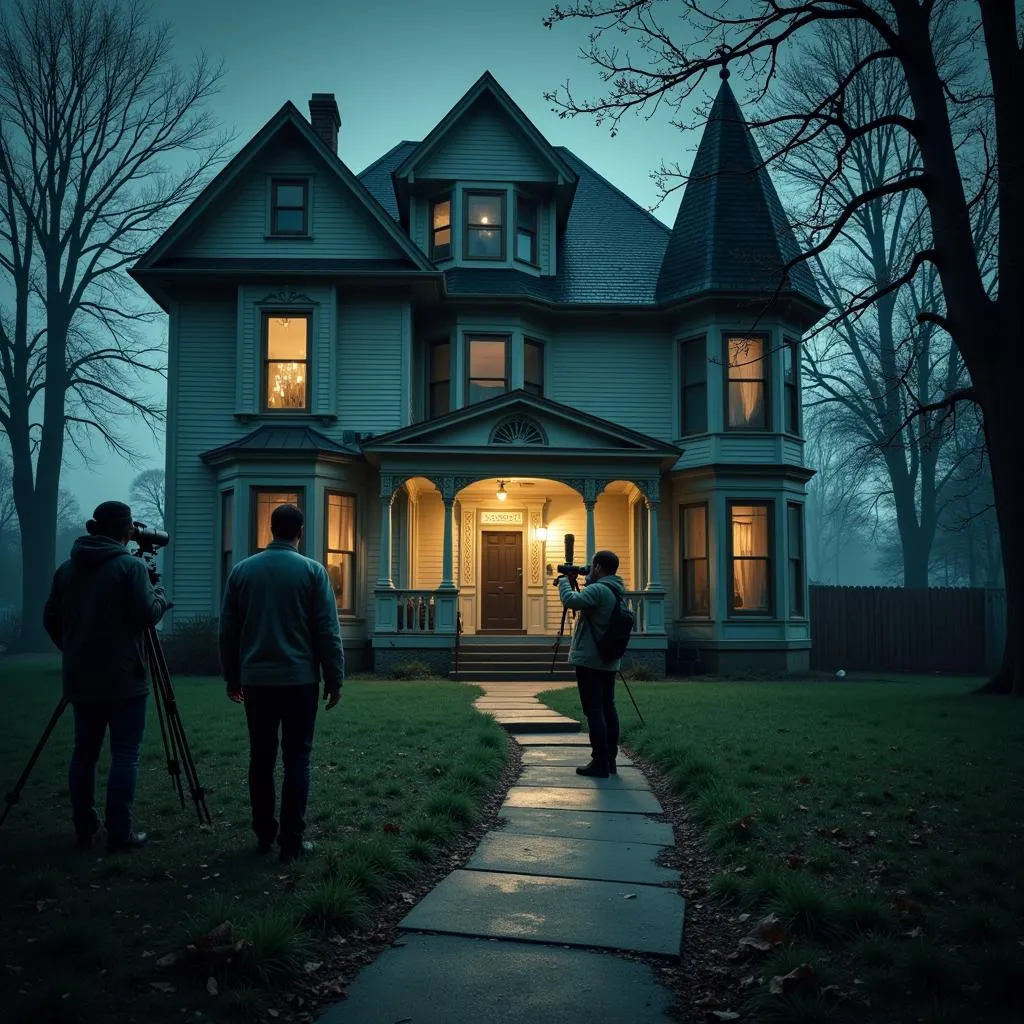Res Research, a term often whispered in hushed tones among paranormal enthusiasts, refers to the rigorous investigation of unexplained phenomena. Unlike casual ghost hunting or anecdotal accounts, RES research employs scientific methods and critical thinking to understand the mysteries that lie beyond our current understanding.
 RES Research: Scientific Investigation
RES Research: Scientific Investigation
Unraveling the Enigma: What is RES Research?
RES research, short for “research into unexplained phenomena,” encompasses a wide range of investigative techniques applied to events that defy conventional explanations. From haunted locations to psychic abilities, RES researchers delve into the heart of the unknown, seeking evidence to either support or debunk paranormal claims.
Key Principles of RES Research: A Blend of Science and Open-Mindedness
At its core, RES research embraces a skeptical yet open-minded approach. It demands rigorous methodology, often borrowing tools and techniques from established scientific disciplines.
- Objective Observation: RES researchers prioritize direct observation over hearsay or personal beliefs. They employ tools like cameras, audio recorders, and electromagnetic field (EMF) detectors to capture potential evidence.
- Data Collection & Analysis: Every piece of data, whether it’s a temperature fluctuation or an EVP (Electronic Voice Phenomenon) recording, is meticulously documented and analyzed. Researchers search for patterns and correlations that might shed light on the phenomenon under investigation.
- Hypothesis Testing: Just like in traditional science, RES research relies on forming hypotheses and testing them against collected evidence. A key difference, however, is the willingness to consider explanations outside of the current scientific paradigm.
- Critical Evaluation: Perhaps the most crucial aspect of RES research is the constant scrutiny of findings. Researchers remain aware of potential biases, environmental factors, and alternative explanations for observed phenomena.
 Paranormal Investigation Equipment
Paranormal Investigation Equipment
The Scope of RES Research: From Ghosts to Premonitions
The realm of RES research is vast and diverse, encompassing a spectrum of unexplained phenomena:
- Hauntings & Apparitions: Investigating claims of ghosts, poltergeist activity, and haunted locations forms a significant portion of RES research. This often involves historical research, interviews, and on-site investigations to gather evidence. You can learn more about specific cases and research methods in our figures research paper.
- Psychic Phenomena: RES research delves into the world of ESP (extrasensory perception), telekinesis, clairvoyance, and other alleged psychic abilities. Controlled experiments and statistical analysis are used to evaluate the validity of such claims.
- Cryptozoology: This branch investigates creatures not yet recognized by mainstream science, such as Bigfoot or the Loch Ness Monster. RES researchers in this field often rely on eyewitness accounts, footprint casts, and analysis of potential habitat.
- Ufology: The study of UFO sightings and potential extraterrestrial contact falls under the umbrella of RES research. Researchers analyze witness testimonies, photographic evidence, and radar data to determine the nature of UFO encounters.
The Importance of RES Research: Expanding Our Understanding of Reality
While RES research might seem like a niche field, it holds significant implications for our understanding of consciousness, the nature of reality, and the limits of human perception. By applying scientific principles to the unexplained, we open doors to new possibilities and challenge our preconceived notions about the world around us.
Conclusion: The Journey Continues
RES research is an ongoing exploration into the unknown. It’s a field driven by curiosity, a thirst for knowledge, and the desire to unravel the mysteries that lie beyond our current understanding. While concrete answers may remain elusive, the pursuit of knowledge through rigorous investigation is a journey worth taking. If you’re interested in delving deeper into specific aspects of RES research, explore our other articles on topics like the Monarch Research Station and the virus research impact factor.
FAQ: Your Questions About RES Research Answered
1. Is RES research just another name for ghost hunting?
While ghost hunting often inspires RES research, it’s important to distinguish between the two. Ghost hunting tends to be more experience-based, while RES research emphasizes scientific methodology and critical analysis.
2. What are some of the challenges faced by RES researchers?
RES research faces skepticism from the mainstream scientific community, difficulty in replicating findings, and the subjective nature of many paranormal experiences.
3. Has RES research yielded any conclusive evidence of the paranormal?
While there have been compelling cases and intriguing data points, no single piece of evidence has definitively proven the existence of paranormal phenomena to the satisfaction of the scientific community at large.
4. What qualifications do I need to become an RES researcher?
There’s no formal degree for RES research. However, a background in science, psychology, or a related field can be beneficial. More importantly, you’ll need critical thinking skills, an open mind, and a passion for exploring the unknown.
5. What are some resources for learning more about RES research?
Reputable organizations like the Society for Psychical Research and websites dedicated to Paranormal Research, like this one, can provide valuable information and connect you with other researchers.
Need Assistance with Your Own Paranormal Research?
Whether you’re facing unexplained activity or seeking guidance on conducting your own RES research, our team is here to help. Contact us at:
Phone Number: 0904826292
Email: [email protected]
Address: No. 31, Alley 142/7, P. Phú Viên, Bồ Đề, Long Biên, Hà Nội, Việt Nam.
Our dedicated team is available 24/7 to provide support and answer your questions.
Explore More:
We encourage you to delve deeper into the fascinating world of RES research and join us in the quest for understanding the unexplained.